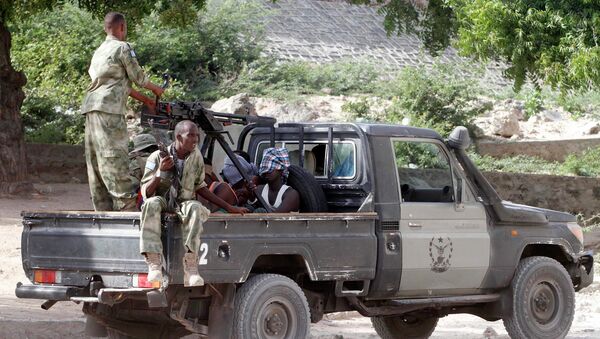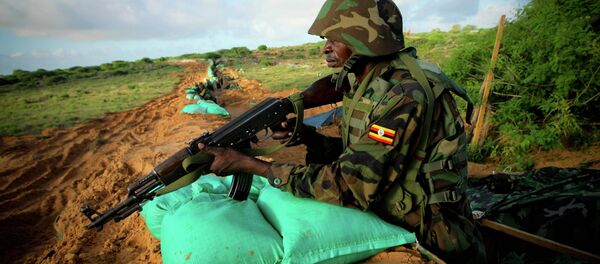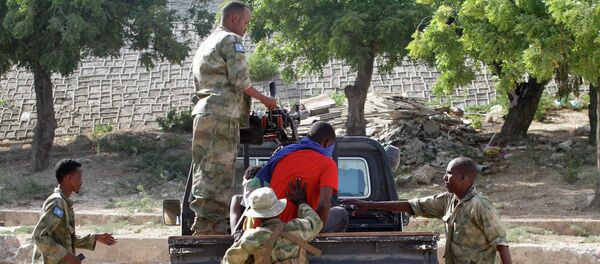"Mr. Hersi, a leading figure in the militant group's intelligence wing, surrendered to police in the Gedo region. In June 2012, the US state department offered $3m (£1.9m, 2.5m euros) for information leading to his capture," the BBC reported.
The top militant, Zakariya Ismail Ahmed Hersi, who was an intelligence chief and a close associate to the group's former leader, was captured near the El-Wak city at the Somalia-Kenya border, military commander Isack Hussein Mursal was quoted as saying by the CNN.
Hersi may have quarreled with al-Shabab members loyal to the former leader, Ahmed Abdi Godane, who was killed about three months ago in a US airstrike, the Associated Press notes, citing Somalia intelligence officer.
According to the BBC, Ahmad Umar was declared as the new al-Shabaab leader, shortly after Godane's death.
Since al-Shabaab has repeatedly conducted numerous attacks against the Somali people, neighboring countries including Kenya have stepped in to provide Somalia's government with military assistance.
The Associated Press reported that the Islamist group attacked the Mogadishu-based African Union base on Christmas day, December 25. The sudden assault resulted in the deaths of nine people, including three African Union military servicemen. Al-Shabaab claimed that the attack "was aimed at a Christmas party" and was an act of revenge for Godane's assassination. However, the African Union military, supported by the US, have already expelled the Islamists from the capital of Mogadishu as well as from other major towns since 2011.
Al-Shabaab, one of al-Qaeda-linked groups, is making attempts to overthrow the Somali government, backed by the UN. Meanwhile, the Somali authorities are trying to revive the economy and restore peace in the state devastated by a longstanding conflict, which started in 1991 after the toppling of Siad Barre's regime. Al-Shabaab is targeting the government as well as neighboring states that deploy military troops in the region in order to contain the terror threat.




